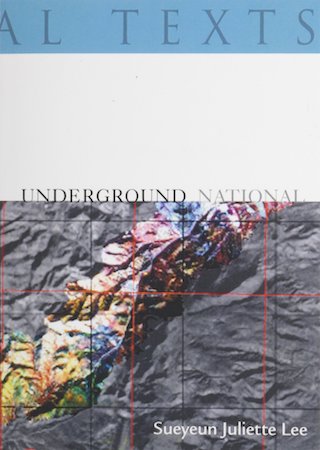Reading Lists
8 Genre-Bending Books by Asian American Women
Sun Yung Shin, editor of "What We Hunger For," recommends experimental and hybrid literature

The Asian American women writers in this reading list explore the existential. They seek to do anything but simplify. They live with and write through some very dense, tangled complexities, even mysteries. Some, perhaps many, unsolvable, with wounds that perhaps cannot be closed, not in this lifetime. These are the kinds of writers who continue to give me the encouragement to write, even to exist, in contradiction and difficulty, in anguish and longing, in love and hunger.
My most recent book, What We Hunger For: Refugee and Immigrant Stories on Food and Family, is an anthology that features personal essays, poems, and recipes by writers from refugee and immigrant families. Their work speaks to the ways ancestry, colonialism, racism, community, and more affect their relationships to food, cooking, and eating. By bringing these voices together, I wanted to explore how food can be as much a site of struggle as it is a site of comfort and identity.
There are so many books that were just as instrumental to my thinking about culture and family that I didn’t have room to include, so it was a challenge and a pleasure to select the following books by Asian American women working in experimental and hybrid modes. The term “intergenerational trauma” has recently become more mainstream, but for so many of us these are simply the lives into which we were born, and which is fundamental material for our artistic inquiry.
These books will support anyone’s quest to understand more about what it means to belong to this world we have inherited, and some of what’s at stake as we imagine and strive for a more life-giving future.
Letters to Memory by Karen Tei Yamashita
Karen Tei Yamashita’s work means a lot to me as a poet, especially her hybrid book Circle K Cycles. Similarly Letters to Memory, her work incorporating archival materials and epistolary communications through the Japanese internment in concentration camps, gave me further permission and encouragement to think relationally about borders, history, and orientalism.
The Vertical Integration of Strangers by Bhanu Kapil
Bhanu Kapil is a singular genius and her book of prose poems The Vertical Integration of Strangers asks South Asian immigrant women a series of devastating questions and integrates their responses into the poems. Not only does my spine shiver at this constraint of a woman speaking to other women who share important aspects of their identity for the performance of poetry, the directness of the questions such as, “Who was responsible for the suffering of your mother?” touches me in a deep place as someone who has lost her (Korean) mother.
Tastes Like War by Grace M. Cho
Tastes Like War by Grace M. Cho is a book that so intricately maps modern Korean history and its devastating impact on one family, centered on Cho’s mother, who was a force of nature in so many ways, and whose intensity and strong willed determination eventually merged into a very stubborn mental illness, schizophrenia. This memoir is intimate and heartbreaking, exploring the persistence of ghosts of war and physical and psychic dislocation and its cost on mothers and daughters trying to stay connected against the violence and loneliness of historical and personal forces.
Ghost Of by Diana Khoi Nguyen
Diana Khoi Nguyen’s debut poetry book Ghost Of is a taut, elliptical book that stuns you with its mourning. There is no solace, there is no filling the empty space, when one’s brother takes his own life, rendering your Asian American immigrant family mutilated and silenced. In these pages, among collaged photographs and the language of voids, Nguyen offers each poem as a kind of white-hot burning of time.
Under Flag by Myung Mi Kim
There is no poet more important to me than Myung Mi Kim, whose book Under Flag gave me the language I had been seeking my entire life as a foreign-born and marked American. Poet Kazim Ali invited us both to read at Oberlin and when we were asked a question about why we use “fragments” in our writing, to my recollection, we both said that we don’t consider the words and phrases in our poems to be fragments, to be broken pieces from an imaginary whole. Under Flag with its documentary impulses and examination of patriotic and military language, as well as immigration procedures, is a scouring, disciplined and disciplining book.
Hardly War by Don Mee Choi
Translator and poet Don Mee Choi, also a Korean American immigrant, at times writes with such dark exuberance and zany energy about and through some of the gravest concatenations of losses, such as the Korean War, which haunts Korean and Korean American life in multiple ways. Hardly War takes the melodrama of the operatic form and combines it with images from her father’s work as a photographer during the Korean and Vietnam Wars to examine her role as heir and witness to memory.

Underground National by Sueyeun Juliette Lee
A woman after my own heart, Sueyeun Juliette Lee includes the CIA in her book of poetry Underground National which challenges notions of nationhood, arrivals, and transit. Satellite images of Korea force readers to contemplate the country as one place rather than a partitioned nation. The chthonic, the underground, the buried, the submerged, the forgotten, the remembered, and currents of human politics and eruptions of madness and spectacle (suicide, pop culture) confront us in this book through Lee’s critical and compassionate imagination, allowing us to experience the anguish of derangement through the memorial of language.
Interrogation Room by Jennifer Kwon Dobbs
The poet and librettist Jennifer Kwon Dobbs is, like me, one of 150,000-200,000 displaced transnational Korean adoptees that have been sent from South Korea to Western nations since 1953 in order to fulfill the family-building desires of American, usually white Christian, married couples. Her elegant, forceful second book, Interrogation Room, creates a site in which deformed and reformed kinships cannot be untethered from the violence of borders. Redactions on the page are spectral evidence of how language is a body that can be haunted, presenting as dark-matter maps of wounded and divided selves, families, and countries.










